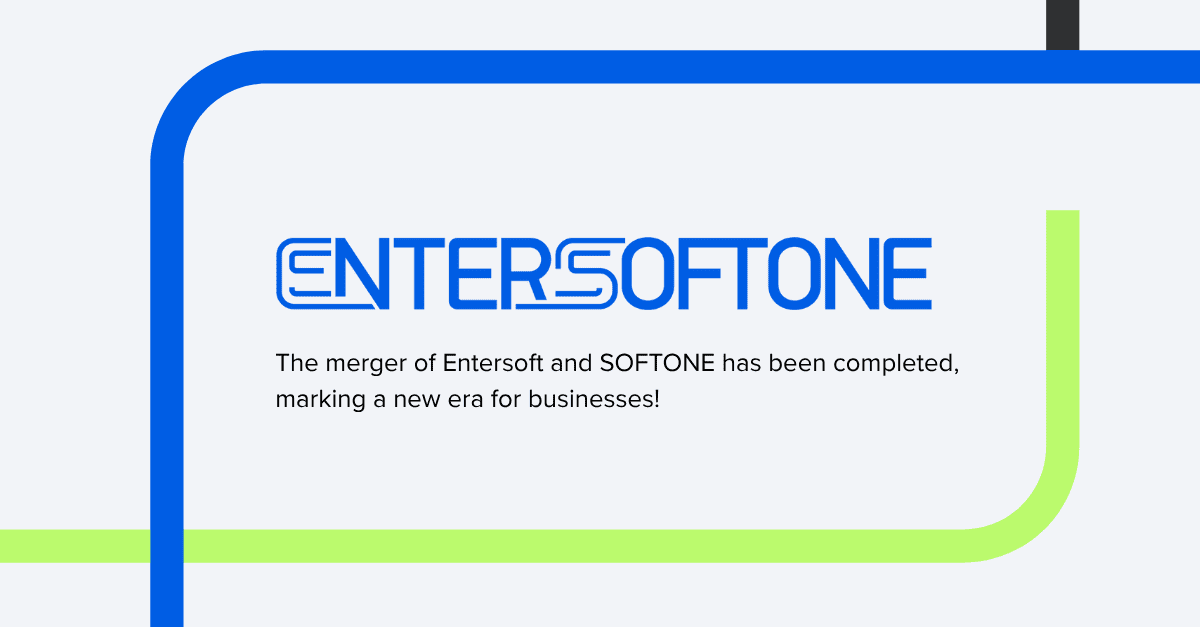Share
Read also

Trends & Views
Digital Transformation Strategies for Success

Business Software
CRM for Small Businesses and Seamless Integration

News & Events
ENTERSOFTONE: The merger of Entersoft and SOFTONE has been completed, creating the largest provider of business software products and services in Greece and Southeast Europe.

Mobility
Outlook for the BYOD and EM market from 2025 to 2035
The ease and flexibility provided by mobile devices, combined with the impressive expansion of wireless connectivity, have drastically changed the way we live and work. For example, businesses have already said goodbye to employees working exclusively onsite and are now welcoming the modern, “mobile employees” that go wherever necessary depending on the circumstances, the business needs and, of course, the needs of their own customers.
Additionally, according to the results of a recent survey by IDG, 66% of people using smartphones and 46% of people using tablets, actually use their mobile devices for work-related tasks as well. On their part, businesses are adopting strategies such as BYOD (Bring Your Own Device) and are implementing much clearer and more effective governance policies, in an effort to respond to the increasing demand for enterprise mobility. The enterprise mobility market is estimated to increase its value by four times from 2013 till 2019, going from 71.9 billion dollars to 266.1 billion!
The landscape has also drastically changed in regard to the devices used in the context of enterprise mobility: the once dominant BlackBerry is now in a free-fall, Apple has transformed into an impressive “monocracy”, having 72% of the market and Android devices are well behind -for now- with a market share of 26%.
The paradox in this case is that Android seems to have a presence conversely opposite to its dynamics! It holds 78% of the global smartphones market, while its share in the enterprise mobility market is significantly lower -an indication that it still has a long way to cover till it wins over an important part of professional users.
One of the positive aspects is that the initial concerns on safety issues and operating system fragmentation, which have had a severe impact on the dynamic development of Android, have now been waived thanks to the recent launch of Android 5.0 (Lollipop) and Android for Work. Actually, the market now considers it a certainty that very soon, Android will climb to the top of enterprise mobility. And here is why…
Android: The safest operating system by far
The latest version of Android 5.0 Lollipop came with huge improvements in terms of safety, including functionalities such as device hiding by default, complete control and management of data access and system services through the Security Enabled Linux (SE Linux), etc. Furthermore, the structure of SE Linux helps prevent malicious software from accessing sensitive data and/or applications.
A new suite of enterprise products
Android for Work is a platform built to offer IT security and control, while at the same time providing users with an exceptionally simple experience. It includes a dashboard for IT departments that can be integrated with EMM (Enterprise Mobility Management) solutions. The result? It provides guaranteed and full control of business data, as well as licenses to access applications and manage devices (e.g. remote setup and erase).
As for the fans of BYOD, apart from having a business-dedicated play store and a productivity tool suite, Android allows the seamless co-existence of work and entertainment applications. So, you don’t need to carry both your personal and business mobile phone at all times.
A platform with internationally leading presence
We should not forget that Google’s commitment to introduce Android to emerging markets, allowed it to maintain its global leadership. In a business world where the BYOD culture dominates, features such as screen size, battery life, stylus support and total cost of ownership, play a decisive role when it comes to choosing a device.
Android can justifiably boast about its endless collection of mobile phones, smartphones and tablet PCs that are distinguished by their own, unique features and functionalities. As for Apple, it has six mobile phones and an equal number of tablets to show for that are all supported by the same operating system.
Innovation
There is no doubt that innovation is the key to succeeding in the mobile ecosystem. When it comes to innovation and development of mobile software, Android is quite a few steps ahead of Apple, with features and functionalities such as notification drawers, custom keyboards, integrated stylus and multitasking, making their first appearance in Android devices, sometimes even years before they were introduced in Apple mobile phones. And let us not forget the smartwatches that Android users enjoyed a whole year before Apple Watch was even launched.
To conclude, the future of enterprise mobility is in the hands of the consumers/end-users. And based on past experience, this market will be shaped by innovative hardware and enterprise software. Thanks to the “army” of users it has and the exponentially increasing number of enterprise solutions, Android has all it takes to dominate this market as well.







